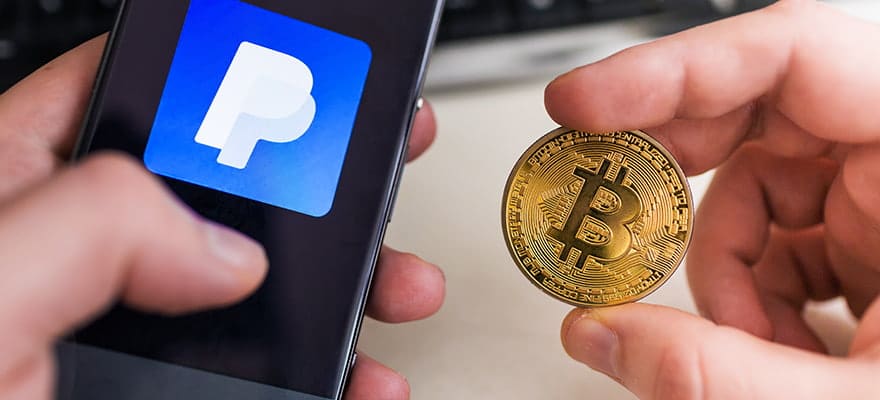Online Payments giant, PayPal (NASDAQ: PYPL) is set to allow cryptocurrency purchasing, selling, and holding on its platform, the company officially confirmed on Wednesday.
Though there is no definitive launch date, the services will be rolled out in the coming weeks for major digital currencies, including Bitcoin , Ethereum, Litecoin, and Bitcoin Cash. The payments company has tapped Paxos, which launched crypto brokerage this year, for these services.
Furthermore, the company will allow its users to pay using digital currencies to all 26 million merchants on its network by early 2021.
“The shift to digital forms of currencies is inevitable, bringing with it clear advantages in terms of financial inclusion and access; efficiency, speed and resilience of the payments system; and the ability for governments to disburse funds to citizens quickly,” PayPal president and CEO, Dan Schulman said.
PayPal's interest in the cryptocurrency market was obvious, given its previous ties with the Facebook-led Libra Association, and leaked reports also revealed developments of crypto-based services behind curtains.
The latest confirmation from the company detailed that the cryptocurrency services will be available initially only on PayPal and will be extended to subsidiary Venmo by the first half of next year.
BitLicense in Possession
Additionally, the California-headquartered company has gained a conditional license from the New York State Department of Financial Services (NYDFS). Only United States customers will be able to access the services at launch, but the company has plans for international expansion as well.
Though PayPal is yet to start crypto services directly on its platform, other US-based financial services companies, including Square and Robinhood, are already offering digital currencies.
PayPal’s entry to the market still has significant importance, given the platforms reach across the world. It has 346 million active accounts, domestic and international combined, and processed $222 billion in payments in Q2 2020.
“We are eager to work with central banks and regulators around the world to offer our support, and to meaningfully contribute to shaping the role that digital currencies will play in the future of global finance and commerce,” Schulman added.

















